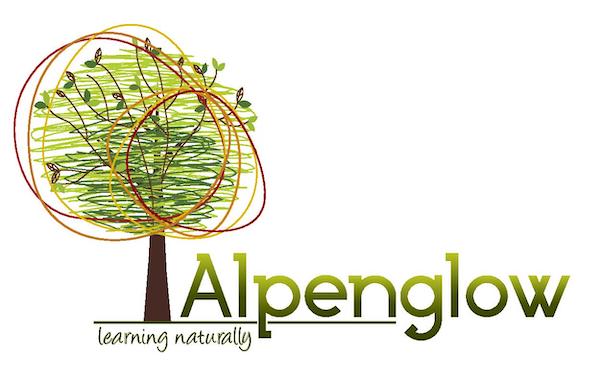Alpenglow School
|
Forest Play facilitates the afternoon programming for the Alpenglow Kindergarten. In mid-November, Forest Play Director, Dave Verhulst, presented a keynote address at the 2019 Calgary Play Summit. Hosted by the City of Calgary at the Calgary Zoo, the summit fostered discussion and ideating amongst one hundred educators, policy-makers and professionals in the field of childhood development. Dave’s presentation skillfully used the art of storytelling to portray the methods and practices of Forest Play from the perspective of Grandmother Spruce- an observant, grandmotherly tree interested in what was happening with the “two leggeds” who were frequenting visitors to her forest. The story highlighted a few experiences from the past eight years of Forest Play programs that illustrated how we build connection to nature, self and others through play.
The YYC Play conference reinforced that play is not just important, but vital to healthy childhood development; outdoor play even more so! As it turns out, there are over 30 adjectives to describe different forms of play! Everything from parallel play, imaginative play and free play to unstructured play, risky play and forest play ;) A simple thing is paradoxically complex at an event with adults! At Forest Play, we can see that outdoor play is not complicated for children – it is natural. We intentionally create space for play by creating a culture that leads to connection. We research and prepare oral stories informed by local plant, wildlife, landscape, climate and traditional knowledge. As the children sit in a circle and munch away on their lunch, we use storytelling to connect us to our place. Storytelling also engages imagination and empathy skills as the children read and interpret our words, facial expressions, tone and mannerisms. Once the inevitable sitting-squirms and fidgeting set in, it’s time to play! This play is often inspired by the adventures of the elves from the lunchtime story. Recently, upon listening to Ms. Heather narrate how the forest elves helped the beavers build lodges and dams packed in with mud, the kindergarten class scurried into self-directed play and imitated their own versions of the story by collecting sticks and logs to build dams and lodges. Other times, the staff segue the children into their free play by facilitating a game. Ms. Heather, Siobhan and Marlou, for example, led the kindergarten children in a game of “healing-tea tag”. The player who is “it” emulates sickness and freezes those in play, the other players can unfreeze their peers by “healing” or “unfreezing” by tagging them with spruce tips; emulating how spruce tips can help heal sickness. This directed play, although not intrinsically motivated, further connects us to our surroundings and others. Inevitably, the games and whatever “rules” might be there to start, are re-written by the kids in short order and their imaginations create amazing opportunities for connection. Lately, it has been a combination of den/fort building, making imaginary soups, creating challenges for the “crystal lynxes” and countless other play experiences. The YYC Plays conference gave us confidence and hope that the importance of play is becoming more widely understood and appreciated. Children at play outdoors are practicing social skills, experimenting with the edges of their physical abilities, learning to trust their intuition, creatively solving problems and engaging all their senses. Read more on the benefits of playing in nature here Play and more specifically “Risky Play” also has been proven to increase physical literacy, risk assessment, fitness, endurance, spatial awareness and strength (i.e. climbing over fallen logs, climbing trees, playing in creeks and sliding down slopes). This type of play has also been proven to reduce separation anxiety (i.e. from playing hide-and-seek games) and increase emotional self-regulation and fear management. Read more on the importance of risky play here Hearing stories from other attendees at the summit and some of the challenges and concerns they are grappling with helped us to see how fortunate we are to live in Canmore. Forest Play is privileged to operate in a community drawn together by the landscape itself and the similar-minded outdoor fanatics who have chosen to call this place home. Canmore loves being outdoors! We feel fortunate to have your trust to connect your children not just to the beauty of nature, but also to themselves, others and to the uniqueness of life in the Bow Valley. Stay tuned for more Stories from the Forest and how we are guided by play to connect the children to nature, themselves and others.
0 Comments
|
Stories from the ForestAlpenglow School's Kindergarten afternoon programming works in partnership with Nature's Tracks Forest Play. Nature experiences should be fun, magical and facilitated in a way so that children feel safe and supported as they explore the edges of their world. The program is built around cycles in nature and the life stages children naturally move through. When children are connected to the natural world, they are more connected to themselves, they are happier and more hopeful. Archives
February 2020
|
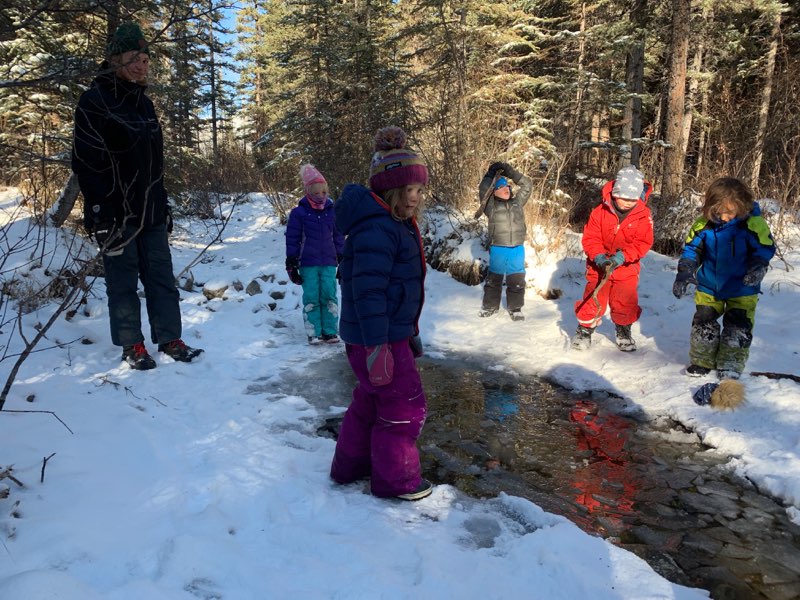
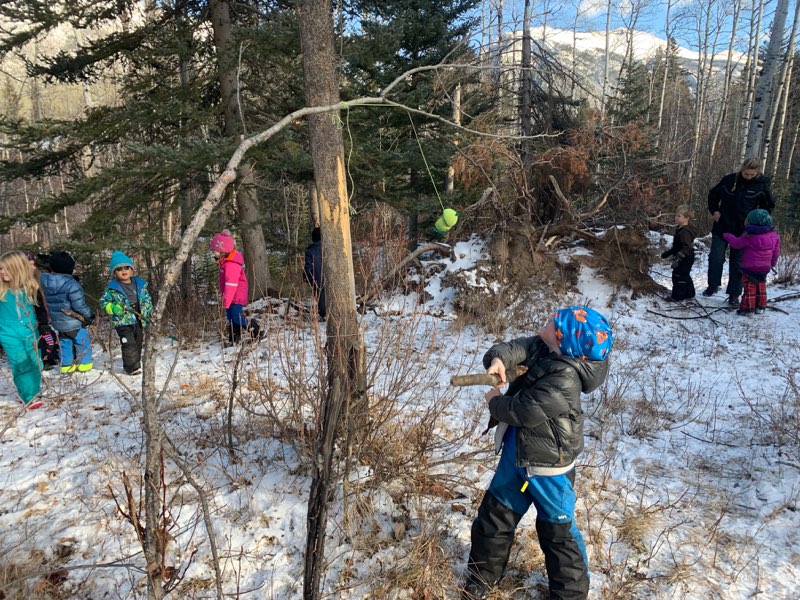
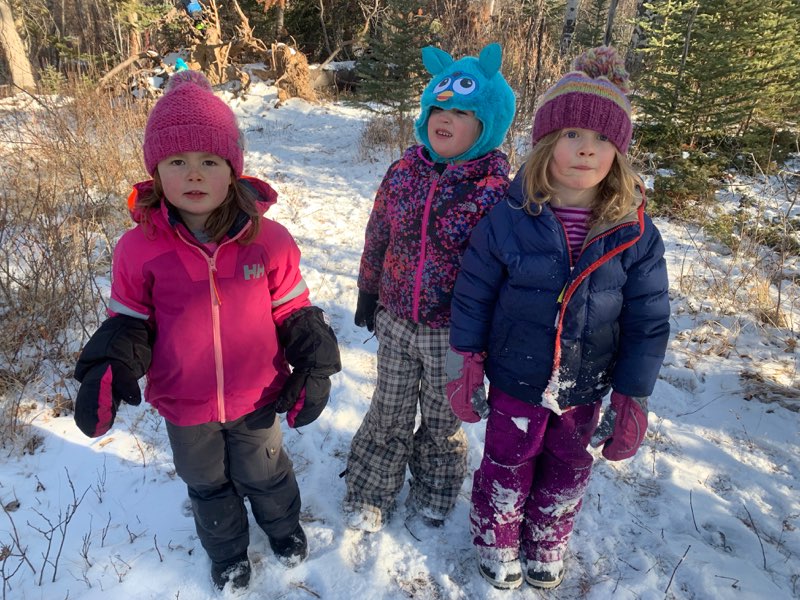
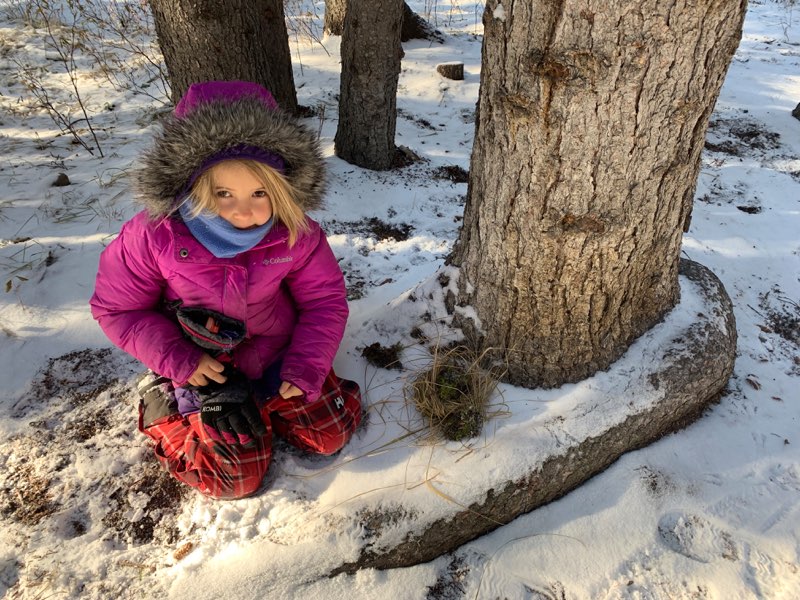
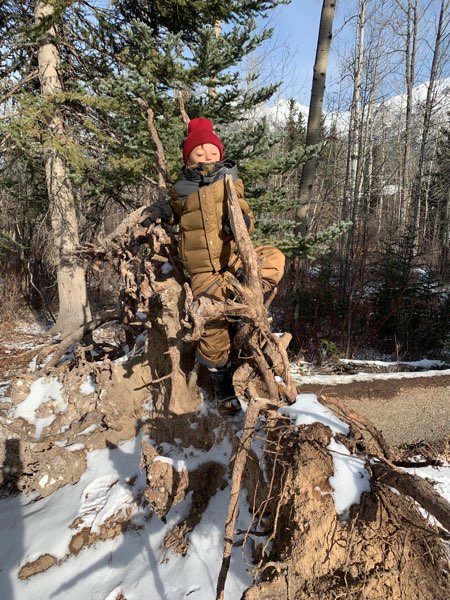
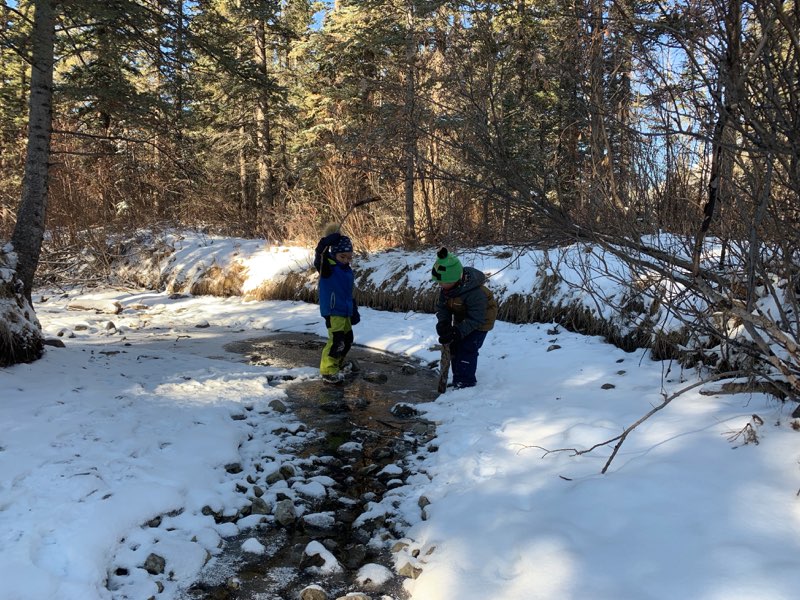
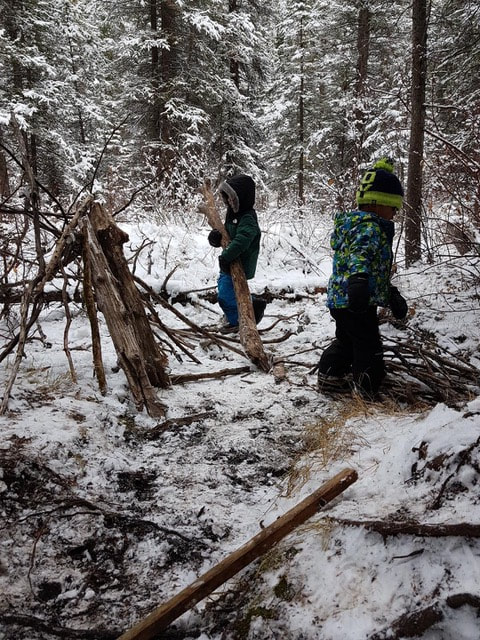
 RSS Feed
RSS Feed
